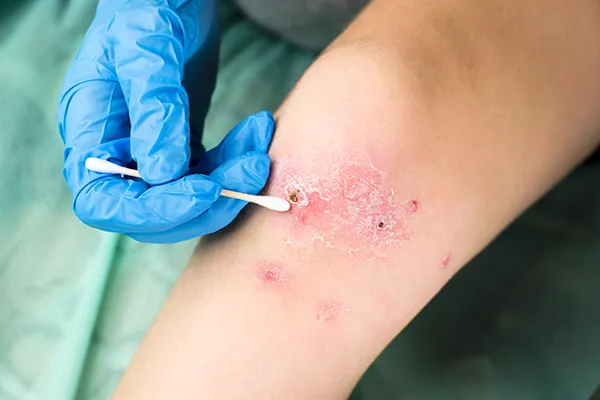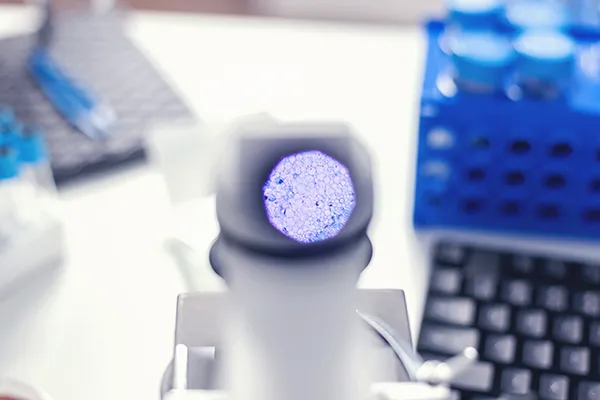

At PSC Dx, we offer swift, reliable results with a level of personal service that sets us apart. As an infectious disease-focused laboratory partnering with a CAP-accredited dermopathology team, we deliver both pathology and molecular diagnostic solutions tailored to the specific needs of podiatrists. Recognizing that today’s clinicians require comprehensive diagnostic insights and prognostic data, we ensure a streamlined process that often provides results within 24–48 hours for standard podiatric pathology.
Podiatric Pathology & Molecular Diagnostic Services:

Receive complete diagnostic snapshot for onychodystrophy and onychomycosis, offering podiatrists precise insights into the nature and extent of nail pathology. Our in-depth reports are designed to support targeted treatments and improved patient outcomes, covering critical factors such as:

We characterize the specific type of fungal infection—whether it’s caused by dermatophytes, saprophytic molds, or yeasts—to help guide the most effective therapeutic strategy.

Our detailed analysis specifies the quantity, distribution, and depth of subungual and total dystrophic changes, enabling clear differentiation between mild and severe cases.

We assess the degree of inflammatory response in the nail unit, which can provide insights into the underlying pathology and guide treatment decisions.

We characterize the specific type of fungal infection—whether it’s caused by dermatophytes, saprophytic molds, or yeasts—to help guide the most effective therapeutic strategy.

By noting acute trauma or repetitive micro-trauma, we help determine whether mechanical stress is a primary factor in nail plate irregularities.
Through our precise diagnostic protocols and expert dermopathologist collaborations, PSC Dx delivers tailored, clinically actionable information that empowers podiatrists to develop effective, individualized treatment plans for their patients.

Our Wound Infection Testing PCR offers precise, rapid detection of pathogens involved in wound infections, enabling targeted treatment and improved patient outcomes. This advanced molecular diagnostic panel identifies a wide range of bacterial, fungal, and antimicrobial- resistant organisms within hours, far surpassing the sensitivity and speed of traditional culture methods.
Key Features Include:
Our pathology lab offers comprehensive bone analysis to aid in diagnosing a wide range of bone-related conditions. Through advanced histological techniques, we evaluate bone biopsies to detect:
Our Process Covers:

Combines advanced histopathological techniques with cutting-edge molecular analysis to precisely characterize benign and malignant conditions involving the skin and soft tissues. By leveraging immunohistochemical and molecular assays, we provide clinicians with comprehensive, data-driven insights that support informed, patient-centered treatment decisions.
Our Nail Unit Evaluation service is designed to investigate a broad spectrum of nail abnormalities, ranging from inflammatory disorders to potential malignancies. By performing nail matrix biopsies and employing specialized histopathological techniques, we thoroughly assess the nail plate for underlying diseases. This comprehensive approach helps ensure accurate diagnoses, guiding optimal treatment strategies and improving patient outcomes.
Our Process Covers: